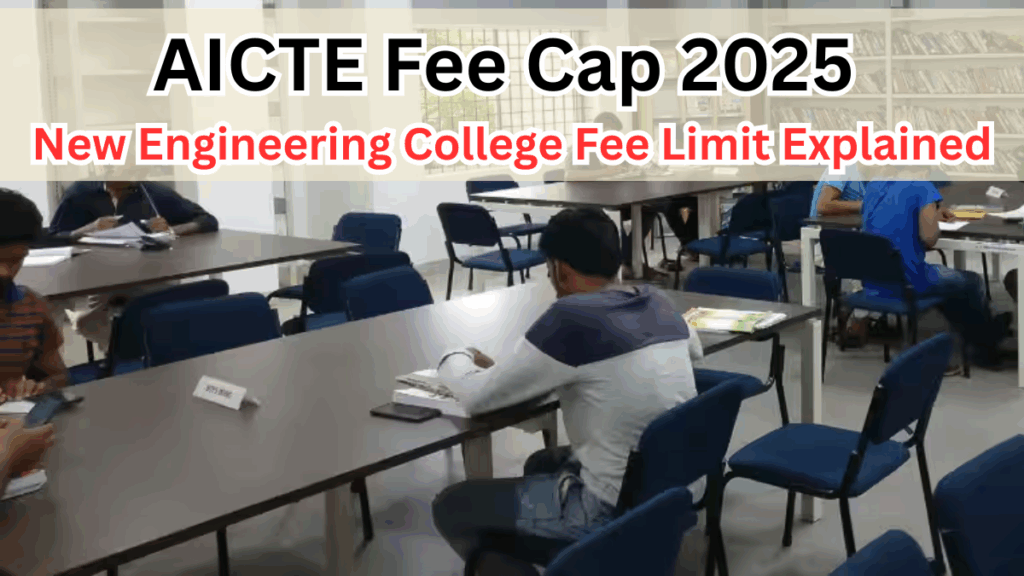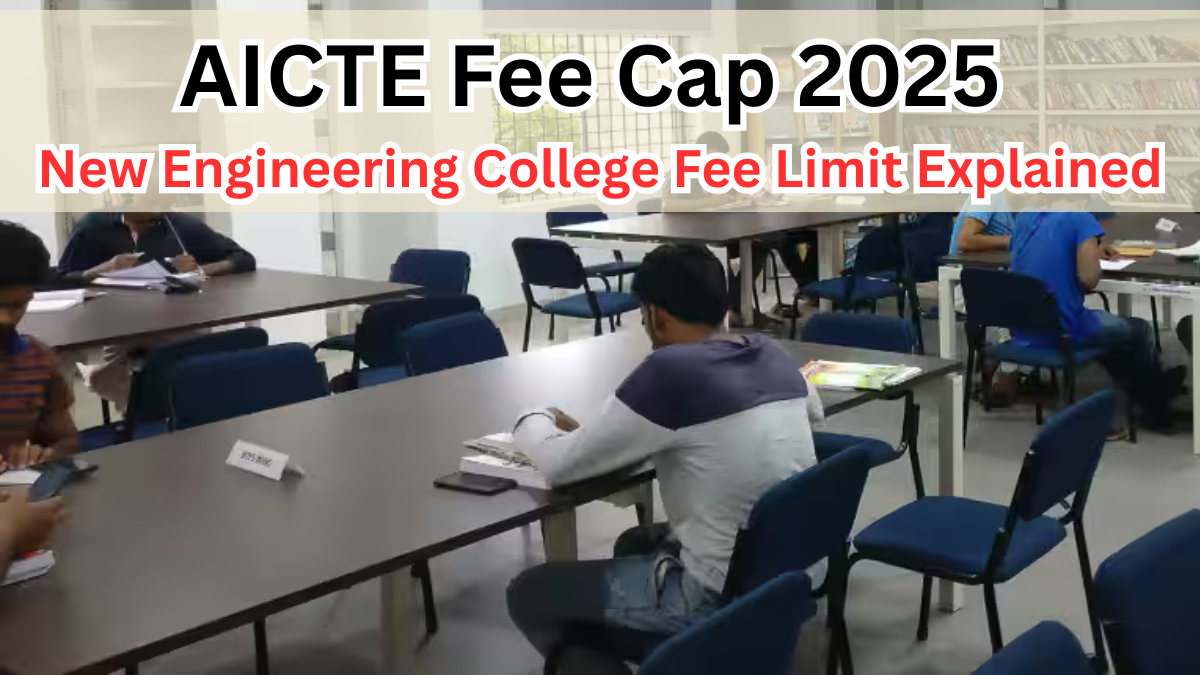The AICTE 2025 guidelines have introduced a new Engineering College Fee Cap to make higher education more accessible and affordable for students across India. This move is expected to bring transparency, reduce exploitation, and ensure that no student is denied education because of financial constraints.

Why the AICTE Fee Cap 2025 Matters
Engineering education in India has always been a dream for many families, but the rising tuition costs have been a major hurdle. With the AICTE 2025 fee regulations, the government aims to:
-
Standardize fee structures across states and private colleges
-
Reduce the financial burden on middle-class and lower-income families
-
Ensure affordability without compromising on quality education
-
Prevent colleges from charging arbitrary fees under the guise of “extra services”
Key Features of the Engineering College Fee Cap 2025
The new Engineering College Fee Cap has been designed to balance affordability for students and sustainability for institutions.
Fee Structure Overview
| Category of Institution | Previous Average Fee (Per Year) | New Fee Cap 2025 (Per Year) |
|---|---|---|
| Government Engineering Colleges | ₹40,000 – ₹60,000 | ₹50,000 – ₹65,000 |
| Private Engineering Colleges | ₹1.2 Lakh – ₹2 Lakh | ₹90,000 – ₹1.25 Lakh |
| Deemed/Autonomous Colleges | ₹2 Lakh – ₹3 Lakh | ₹1.25 Lakh – ₹1.75 Lakh |
Highlights of the Policy
-
A maximum ceiling fee is set depending on infrastructure, location, and faculty strength
-
Additional charges like hostel fees, exam fees, and transport must also be regulated
-
Colleges must publicly disclose their fee structure on their official website
Benefits for Students and Parents
The new policy is not just about numbers—it’s about reshaping trust in the education system.
-
Transparency: No hidden costs or surprise charges
-
Affordability: Families can plan finances better
-
Equal Opportunity: Students from diverse backgrounds can pursue engineering
-
Standardization: Colleges across states will have a uniform guideline
How Colleges Will Adapt to AICTE 2025 Fee Guidelines
Colleges will now need to:
-
Justify their fee structure with detailed expenditure reports
-
Invest wisely in facilities without overburdening students
-
Focus on improving placement opportunities and industry tie-ups instead of raising tuition
The Road Ahead
The AICTE 2025 reforms are a bold step toward affordable and transparent education. While some private colleges may raise concerns about sustainability, the long-term goal is clear: quality engineering education at a fair cost.
FAQs on AICTE Fee Cap 2025
Q1. What is the AICTE 2025 Engineering College Fee Cap?
It is the maximum limit on tuition fees that engineering colleges can charge, set by AICTE to ensure affordability and transparency.
Q2. Will private colleges still charge more than government colleges?
Yes, private colleges generally have higher operational costs, but under the new Engineering College Fee Cap, their fees are now regulated within a reasonable range.
Q3. Does the fee cap include hostel and other charges?
No, hostel and transport fees are separate, but AICTE has directed colleges to keep these charges reasonable and clearly displayed.
Q4. How will this benefit students in the long run?
Students will save money, face fewer hidden costs, and gain access to fairer opportunities for higher education without excessive financial strain.
Click here to learn more
